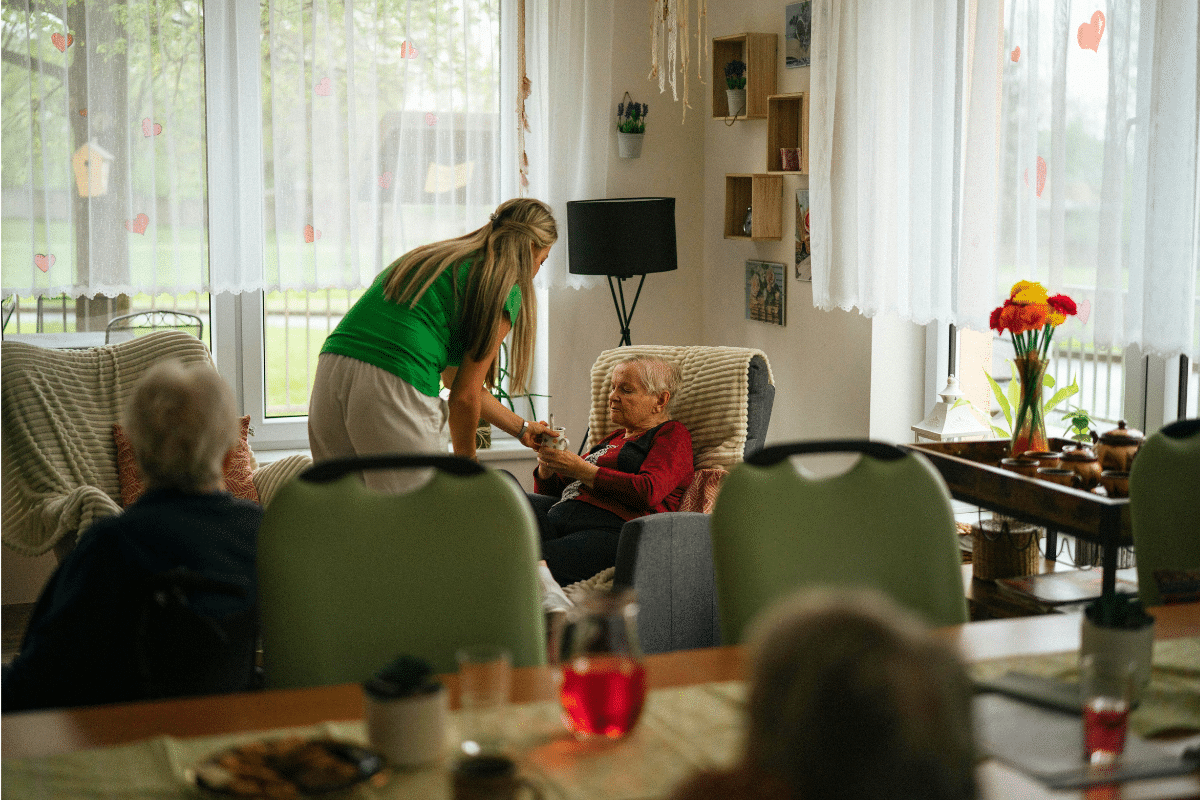Navigating the healthcare landscape remains a critical priority for millions of American families in 2026…
When discussing estate planning and Medicaid planning, the phrase “life estate” is sometimes mentioned, but what does it mean?
A life estate is a form of joint ownership of a property that allows one person to remain in the home until their death.
After they die, the house passes to the other owner.
Elder law attorneys use life estates to help avoid probate and give a house to children while you still live in it. They may be used for any type of real property or land, and really simplify the estate planning process.
How Does a Life Estate Work?
With a life estate, two or more people each have an ownership interest in a property, but at different points in time. The life tenant (person holding the life estate) possesses the property during their lifetime. The remainderman (other owner, i.e., child) has a current ownership interest; however, they can’t take possession until the death of the life tenant.
What are the Benefits?
During the lifetime of the life tenant, they have full control of the property and have the legal responsibility to maintain the property. The life tenant also has the right to use it, rent it, and make improvements as they see fit, but they can’t sell or mortgage the property without the agreement of the remainderman. So it may be easier to refinance if necessary before developing the life estate. If the property is sold, the proceeds of the sale are divided among the life tenant and the remainderman. If sold, the life tenant may receive a lesser share of the proceeds as the shares are determined based on the life tenant’s age at the time — the older the life tenant, the smaller their share.
Upon the death of the life tenant, the house won’t go through probate as the ownership passes automatically to the remainderman. In addition, because the property is not included in the life tenant’s probate estate, it can avoid Medicaid estate recovery.
Estate Taxes
Although the property won’t be included in the probate estate, it will be included in the taxable estate. If the size of the estate is larger than $12.06 million (for 2022), the property may be subject to estate taxation.
If you want comfort knowing exactly what will happen to your home upon your death, a life estate may be a great option. An elder law attorney can help you find out if a life estate is appropriate for your situation. Then a legal strategy is necessary to transfer property while qualifying for Medicaid benefits. If it’s not done correctly, it results in a Medicaid penalty period. Please contact our office to schedule a consultation.
The attorneys at Russo Law Group, P.C. are experienced in all aspects of estate planning and Medicaid planning in New York. We can help you create a life estate to live in your home as long as possible, then transfer property outside of probate. Reach out today!




my mother deed a house to me with life estate deed wee like to sell she moved in my house
Dear Rosario,
Thank you for your question.
At the closing of the sale of the house, your mother will have to sign the deed with you (her daughter) in order to extinguish her life estate. If you need further guidance, please give us a call at 516-683-1717 to schedule a time to meet.
Sincerely,
Josh Berzak
Do life estates work for Medicaid protection in NY?
Hi Jennifer,
Yes, life estates can work as part of Medicaid planning in NY. However, it is critical to understand all of the potential implications.
Please contact us at 516-683-1717 to schedule a meeting.
Sincerely,
Frank Buquicchio, Esq.
Hello, I had a question regarding the obligation of a lifetime tenant to pay all of the financial obligations of the home. My husband who is a remainderman on the deed, had been paying part of the taxes on the house for the last 8 years because the life tenant, his mother, knew she had the financial obligation to pay but never disclosed this to him and he had no idea. Despite the ignorance on his part, does he have a legal leg to stand on as far as getting any of those funds that he put into the house, back? Thank you!
Thanks for reaching out to us.
If you still need assistance, and to properly advise you as to your question, we would need to review the legal documents.
You will need to get proper legal advice as to addressing your situation and advise you as to your options.
If interested in our law firm advising you, please contact our office at 516-683-1717.
Please note this reply is informational only and not legal advice. You should seek the services of an attorney for legal advice.
Sincerely Yours
Janet Corsetti, Client Service Coordinator
my mother’s house deed was changed to life estate and my brothers were made the remaindermen . I was left out when i became disabled with cancer. My mom and I live together in the house.After she goes, I dont want my brothers to throw me out.My mom wants me to own the house after she goes. Is there Any way I can also have part of her life estate? can it be transferred to me? They will not make me a remainderman.
Thanks for reaching out to us.
In order to properly advise you as to your question, we would need to review the legal documents.
You will need to get proper legal advice as to addressing your situation and advise you as to your options.
If interested in our law firm advising you, please contact our office at 516-683-1717.
Please note this reply is informational only and not legal advice. You should seek the services of an attorney for legal advice.
Sincerely Yours
Janet Corsetti, Client Service Coordinator
Hi. I have a question that I’ve not seen addressed anywhere. I understand the situation about the house itself when it comes to life tenancy, but what about items WITHIN the house? For example, let’s say that I (the remainderman) bought a couch for the house. My mother (the life tenant) decides she doesn’t like it, and wants to give it to Goodwill. Is she able to do that? Or have it painted a different color (interior) or change out the vanity or things of that nature? Or suppose I have things in storage there that I’d like to keep there. Am I able to do that? Thanks!
Thanks for reaching out to us.
We would need to have a more detailed discussion about your situation in order to properly advise you.
Please feel free to contact our office at (516) 683-1717. We will also answer any questions you may have regarding our services and legal fees.
Please note this reply is informational only and not legal advice. You should seek the services of an attorney for legal advice.
Sincerely,
Janet Corsetti
Client Service Coordinator